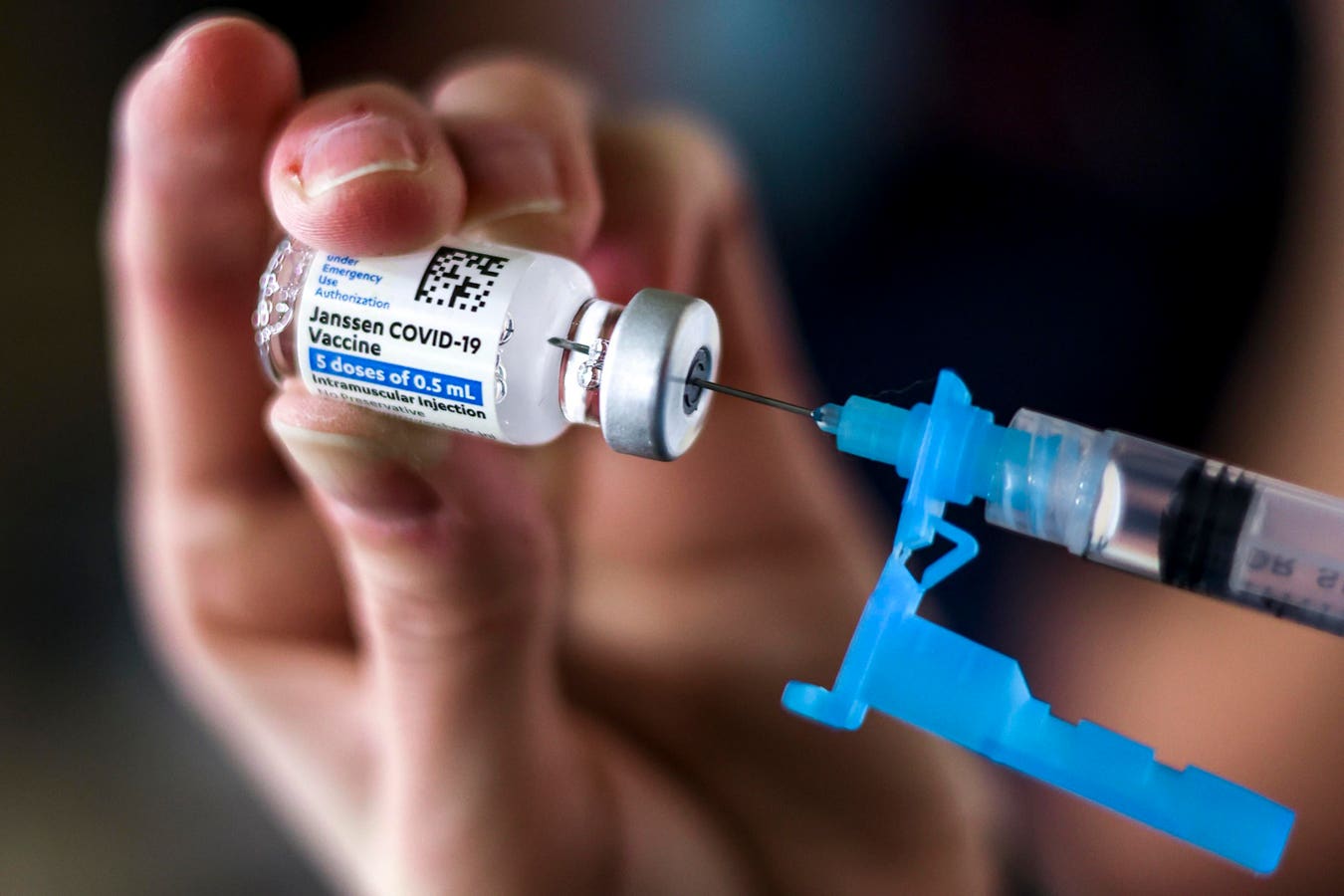THORNTON, CO – MARCH 06: Adams 12 Five Star Schools District RN Tiffany Karschamroon draws a dose … [+]
The NIH and CDC have recently terminated a number of critical health initiatives, so many that it has been difficult to keep track of. The latest- over 40 grants related to vaccine hesitancy now cancelled by the NIH, according to NPR.
The timing of these terminated grants has public health experts concerned, given the measles outbreak that originated in Texas that has now claimed over 300 cases and two deaths, according to the CDC. The vast majority of cases and both deaths have occurred in unvaccinated individuals, and the outbreak has been fueled by vaccine hesitancy, with herd immunity levels falling below 95% in the areas of Texas where measles has been spreading. For successful containment of measles, herd immunity levels need to be at or above 95% in order to control the spread of the deadly disease.
The cancellation of these grants is much more than meets the eye. This will undoubtedly have devastating consequences for public health in America and around the world, and here’s why.
These actions not only undermine public health and science, but are setting up America to repeat and amplify the same mistakes made during the COVID-19 pandemic. During the pandemic, vaccine uptake become heavily politicized, causing a stark divide between Republicans and Democrats. As a result, vaccination rates have declined, vaccine hesitancy has risen and diseases that were declared eradicated like measles have seen a resurgence in the United States.
Research into the causes of vaccine hesitancy to promote vaccine acceptance are crucial in maintaining public health. The abrupt cessation of funding for these studies will continue to perpetuate vaccine hesitancy in society because such endeavors will be perceived by the public as less important when compared to other research. In addition, the lack of research obviates the possibility of demonstrating clear data that could show why vaccines are so important and life-saving.
Without such data, vaccine misinformation will continue to soar, as it already is through the speed at which social media can propagate information. Some of this misinformation has been widely spread by the current Secretary of Health and Human Services, who has repeatedly claimed that vaccines are linked to autism, which has no strong scientific basis. As misinformation spreads, public trust in evidence-based interventions like vaccines becomes compromised, which threatens the ability to control important diseases.
Take measles for example. This is a disease that was declared eradicated in America by the World Health Organization in 2000, but because of vaccine hesitancy and declining vaccination rates, we now have more than 300 cases this year alone. These cases and certainly the two deaths could have been entirely prevented through successful vaccination.
Measles is just an outbreak, not even a pandemic, and yet we have been unprepared to deal with the hundreds of cases affecting our country. With the termination of grants that seek to study vaccine hesitancy itself, a perfect storm is being created where vaccine hesitancy will rise, public trust will be eroded and misinformation will go unchecked.
Imagine now if a real catastrophic public health issue were to threaten the lives of thousands or hundreds of thousands of Americans, the way COVID-19 did. Would the United States even be able to distribute vaccines in a way that the majority would be compliant in getting vaccinated? Would the public trust health experts that claim vaccines save lives? Would messaging be clear for the public to understand how to mitigate the threat?
It is a matter of time before the U.S. is really tested with a major public health threat, and the current state of science now has not set us up well to tackle the threat. There is no shortage of potential threats, given the bird flu and the rise of many infectious diseases such as measles and TB in America.
The current state of science and our preparedness to deal with public health threats seems very reminiscent of the state of affairs during the COVID-19 pandemic.








